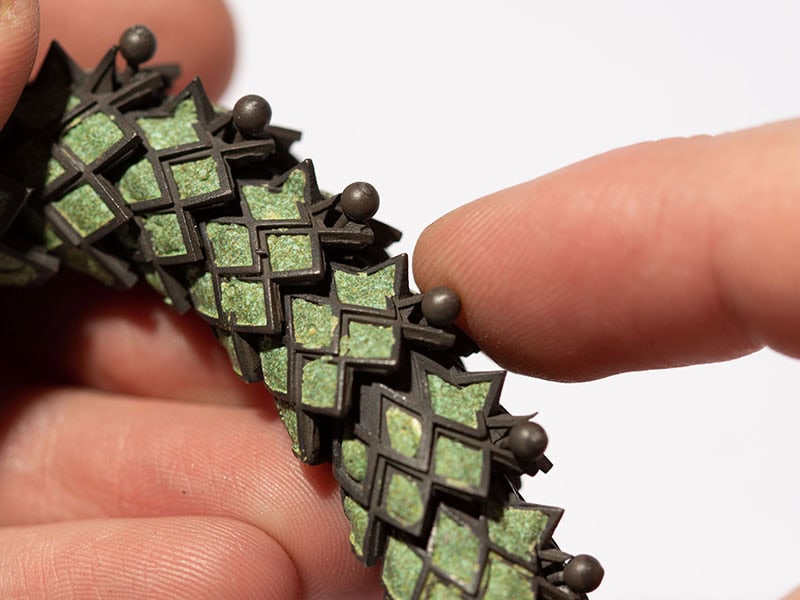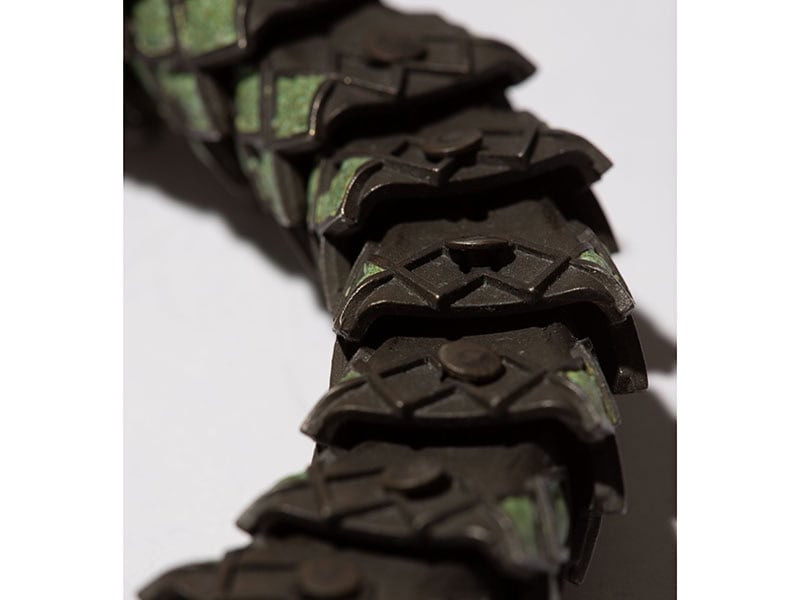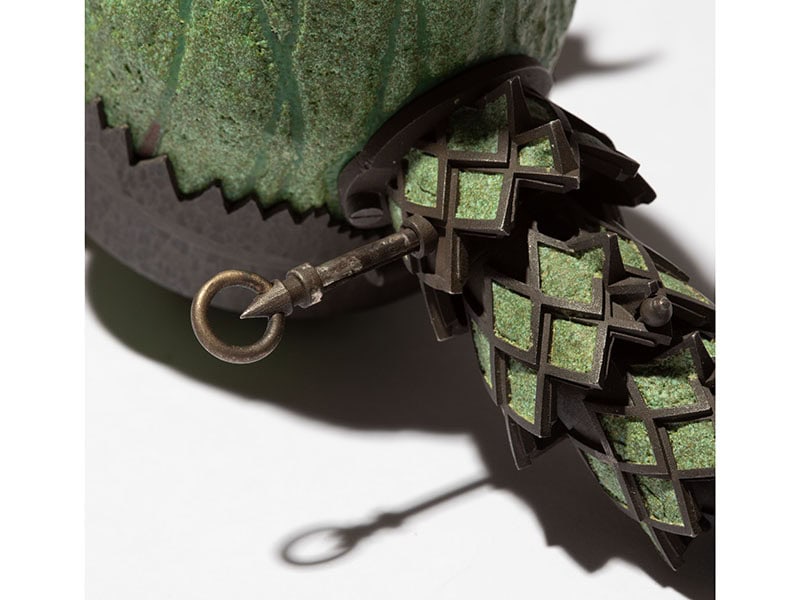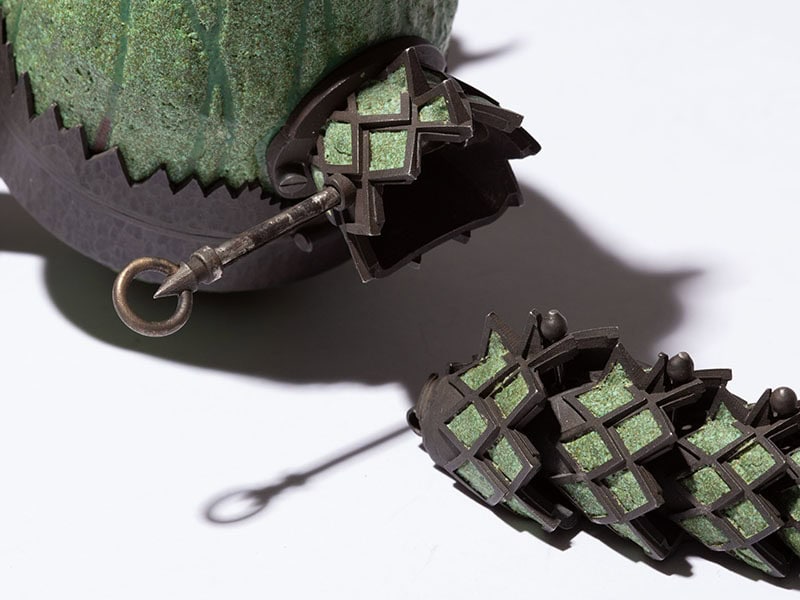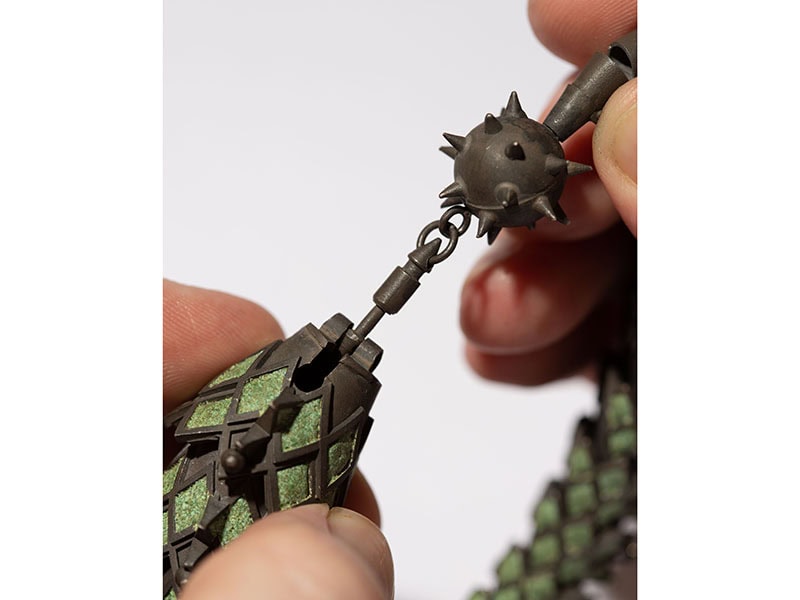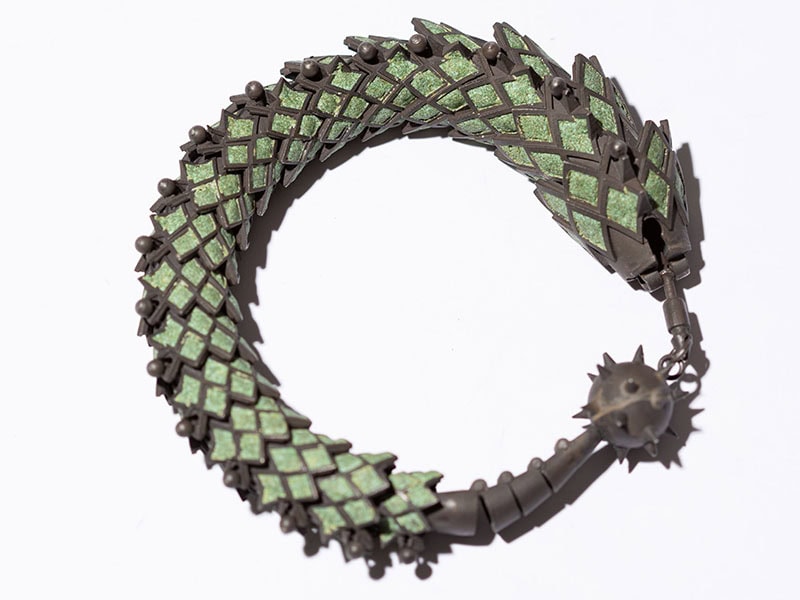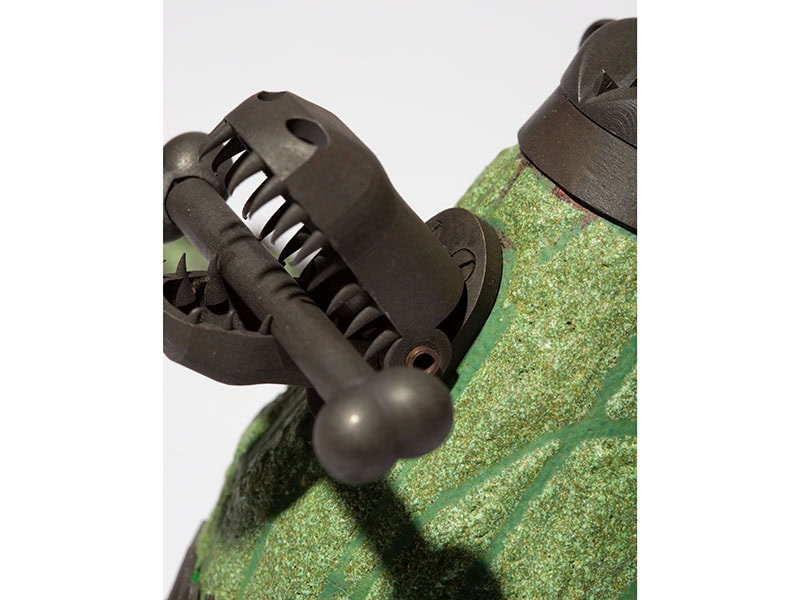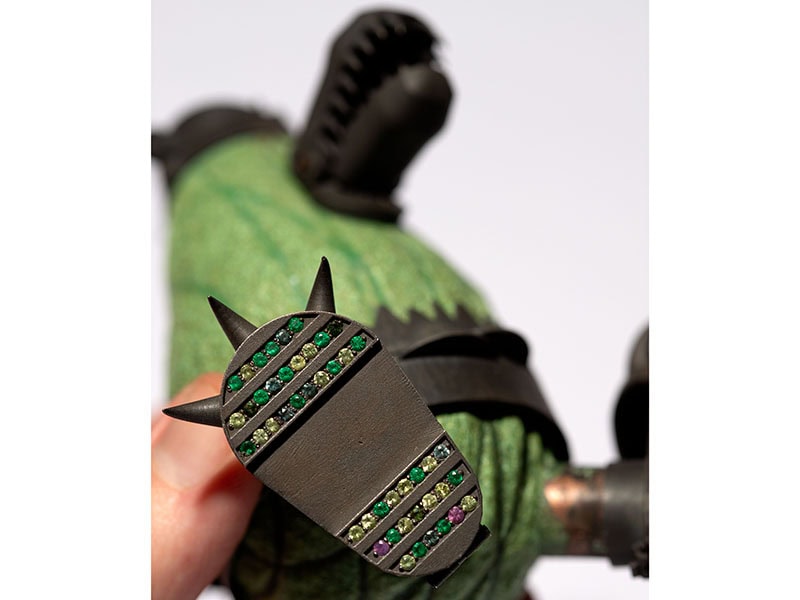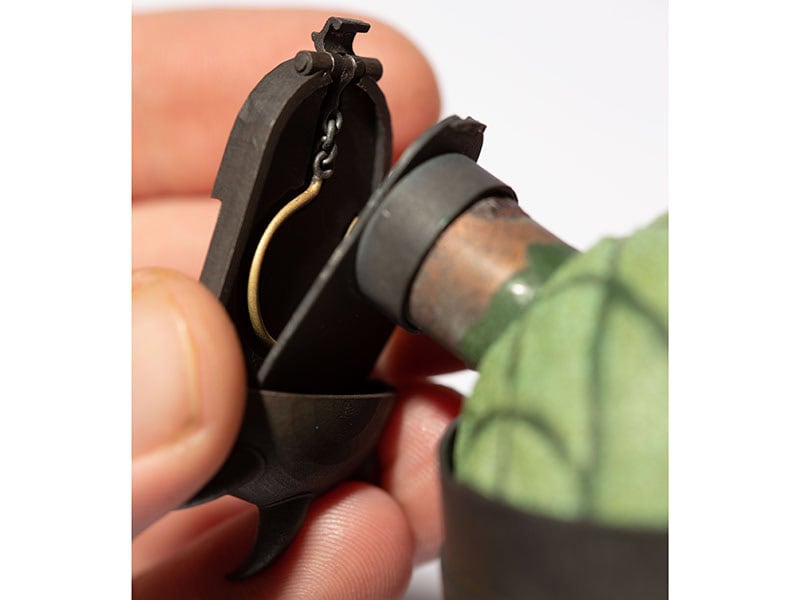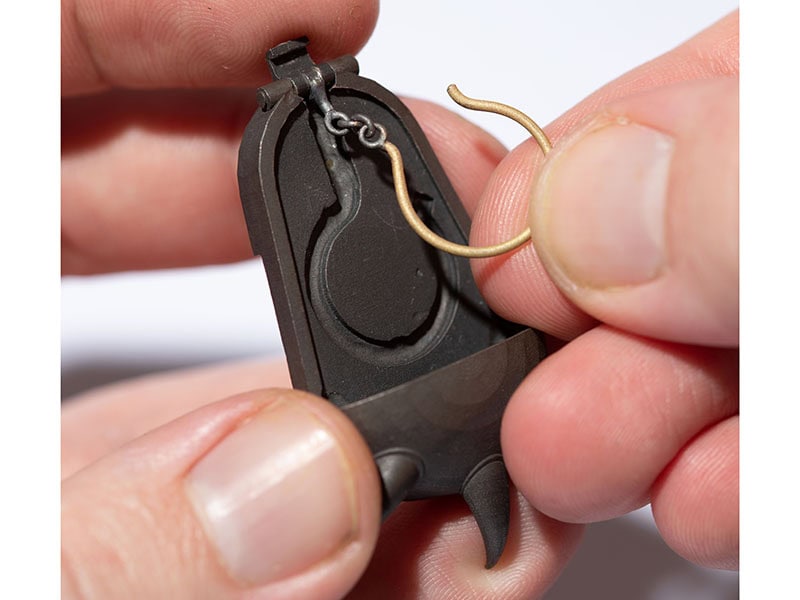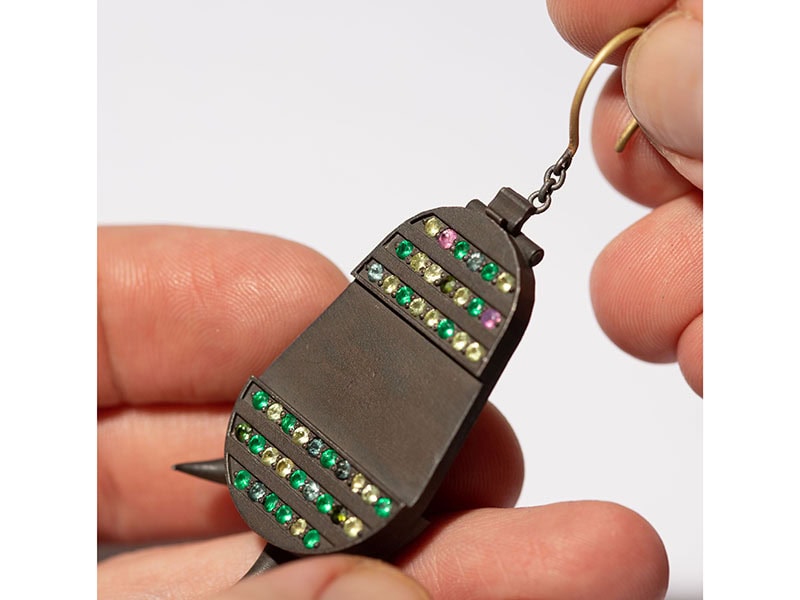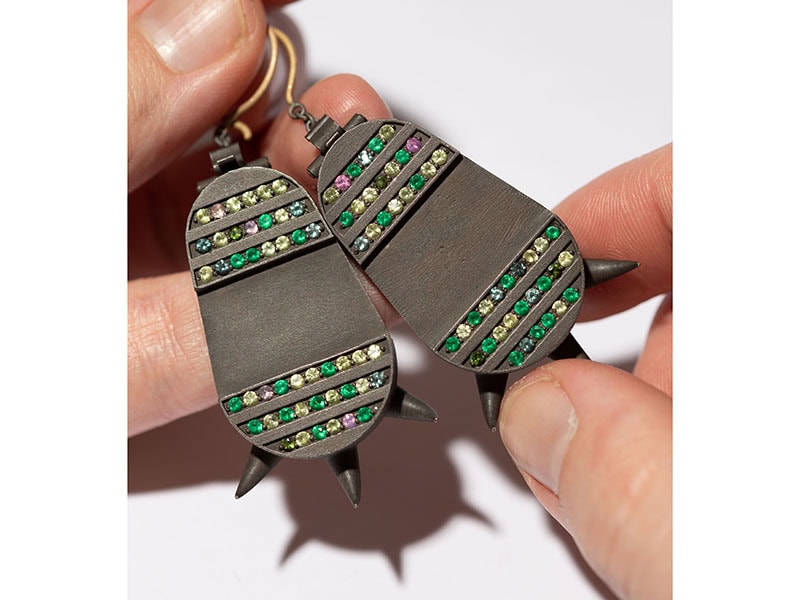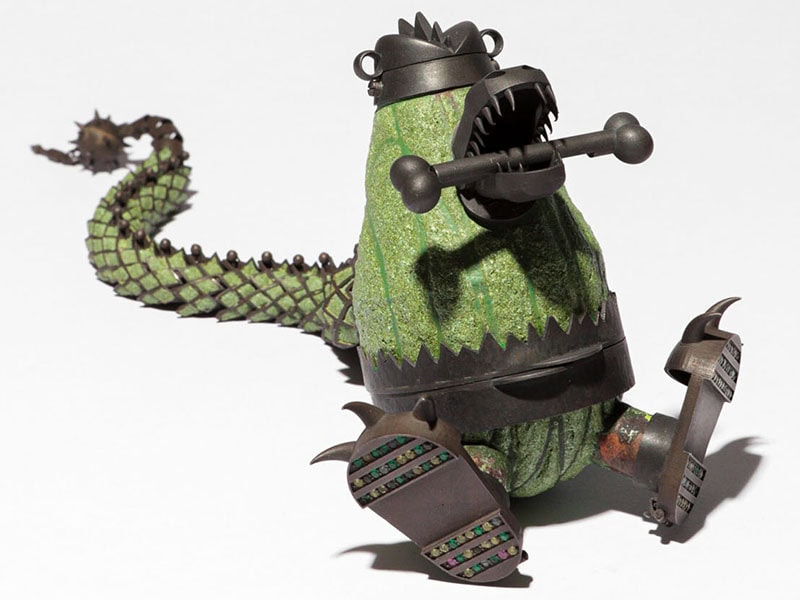
AJF’s Young Artist Award acknowledges promise, innovation, and individuality, advancing the careers of rising artists. The work of the winner and four finalists represents a group of outstanding pieces of contemporary jewelry. As a finalist, Decker received an unrestricted cash award of US$1,000 and exhibited his work in Platina’s booth at the Messe during Munich’s jewelry week.
AJF asked this year’s honorees to describe their backgrounds and share their thoughts on the future of our field. This is the fourth of the interviews. Read the one with winner Bryan Parnham here. Our interview with Margo Csipö is here. We spoke with Corrina Goutos here. Stay tuned for our final interview next month, when we’ll talk with Everett Hoffman.
The Young Artist Award competition was open to makers of wearable art age 35 and under who were not enrolled in a professional training program at the time. Judging was based on originality, depth of concept, and quality of craftsmanship. This year’s jurors were 2022 AJF Artist Award winner Mallory Weston (from the US); collector and gallerist Atty Tantivit (Thailand); and maker Ted Noten (Netherlands).
AJF: Congratulations on being a finalist for the Young Artist Award competition, Aaron—that’s quite an accomplishment! How did you become interested in jewelry? And what inspires your work?
Aaron Decker: Thank you! Being named a finalist among such an extraordinary group of makers was an honor. The collective energy was humbling, and I felt privileged to be part of such esteemed company.
My interest in jewelry began after the passing of my grandfather, a clockmaker who spent his later years meticulously crafting in his workshop. Prior to that, he had devoted much of his life to working in a shoe factory after WWII. Despite the frequent moves that came with being a military kid, I cherished the time spent in his workshop, tinkering, breaking things, and creating makeshift watches. It wasn’t until his passing that I considered following in his footsteps. That’s when jewelry found its way to me.
I began under the mentorship of Sharon Portelance and Jeffrey Clancy at Maine College of Art, and continued through studies with Iris Eichenberg at Cranbrook Academy of Art. Since then, jewelry has become my sole focus. By day, I am a senior jewelry designer for a Detroit-based watch and lifestyle goods company; by night, I delve into creating my own pieces of art.
What does being a finalist mean for you? Do you think it will influence you going forward?
Aaron Decker: Being recognized by the judging panel for this award is a tremendous honor. I cannot thank them enough. This recognition means so much to me and will undoubtedly influence my practice. If I had to highlight one aspect, it would be that this acknowledgment strengthens my resolve in the studio.
I dedicate considerable time and make significant sacrifices for my practice. Many view my day job as a distraction from my studio work, and I often receive advice to focus solely on my art. However, my job and the way I navigate life are all in support of my studio practice. This recognition serves as an affirmation, allowing me to reflect and say, “You’ve got this, Aaron. Keep going.”
Tell us about the work you applied with.
Aaron Decker: My relationship with objects is complicated. I hate how they can make us, how they can let others make us.
As a queer person who grew up in the military, I am fixated on how objects could make a man, [and] more acutely in this work, how a boy can be shaped by his toys. Imagine a prince presented with a bejeweled T-Rex. In his gilded room he plays with this monster [as it ruins small wooden houses and eats] townspeople. Its glass skin glistens green as villagers are swallowed up in silver teeth splitting spines clear in half. The villagers’ muted screams echo…
Combining references to toys and Fabergé, I use enamel as a material embedded in the history of royal courts, monarchical traditions, and military recognition. My goal: to quote objects with a troubled past. In this work I deal with a simple fact—that some [of the] objects we adore so greatly (royal jewels, gemstone-encrusted animals, enameled military medals) come from a time in history when violence equated to wealth. Even today it still does. I camouflage in a plaything, a toy, a collection of parts, a reflection of a person, a prince, a boy.
Please select one of the pieces you applied with and tell us more about it.
Aaron Decker: Funnily enough, is it one piece, or is it a group of pieces? I still find myself questioning this in the current work and in future projects slated for Spring 2025.
Right, because Die! No! Bomb!, like many of your works, is a parure. The bone in its mouth comes apart to reveal a tiny screwdriver. Parts of the figure can be removed to wear as a bracelet and earrings, and its belly—which opens—contains a chain and a pendant.
Aaron Decker: Regarding my approach rather than the concept, each component is reminiscent of toys from the 90s or 2000s in its construction, shapes, and transitions. Objects situate themselves in time, and toys are no exception. This functional and aesthetic throughline serves as a form of timestamping and indicates that the work reflects my experiences, or those of a kid like me. I relish creating these toy-like pieces, solving problems with the precision of a watchmaker or clocksmith while maintaining the playful spontaneity of a child. The fabrication process can often be challenging, tedious, and even frustrating, but that’s sometimes where the most fun lies.
AJF: What excites you about the art jewelry field?
Aaron Decker: It all excites me. I love artists’ visions, their works, and them. Jewelry is so tied to the human existence. That’s why it offers such a rich context to interrogate and use. Being in this cohort reinvigorates that excitement.
Where do you think the field is going? What new and exciting trends do you see in art jewelry?
Aaron Decker: I don’t like crystal balls, and I don’t like to think of the jewelry world as an isolated bubble, separate from the broader context of the world. The direction this field is heading is similar to that of the art world at large. Academic programs are changing faculty, closing, or taking a hiatus. The collectors who established themselves as market movers from the 1980s to the 2000s are slowing their pace of support and concentrating on placing their collections and awarding new makers.
All this is happening while technology in jewelry-making steadily progresses, as it always has. I don’t know where the field will be in 25, 10, or even five years, but the trend I see now is that of makers persevering, keeping on, and finding a path that works for them. That’s all you can ask for.
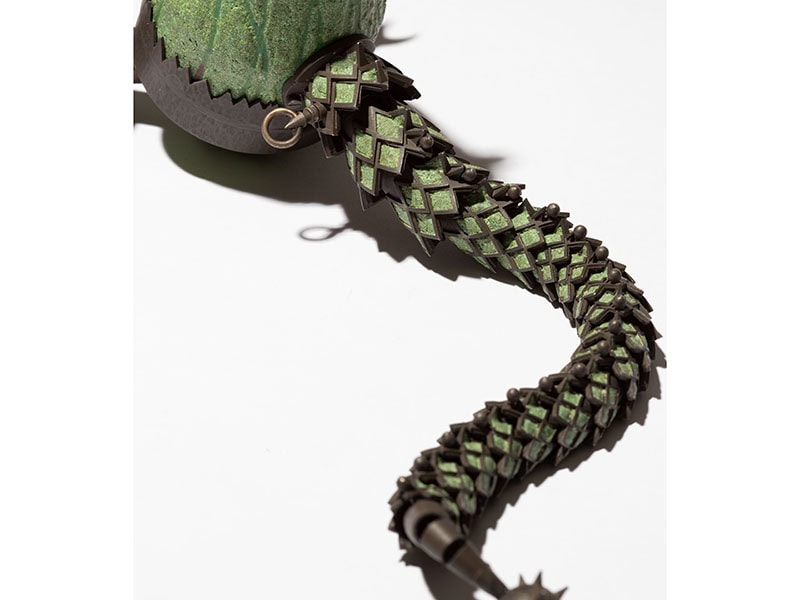
Any frustrations that you have with the field or see within it?
Aaron Decker: My only frustration is not having enough time for my work—a sentiment I believe many of my peers share. I sometimes wonder whether, even if I had more time, it would be enough to accomplish everything
I want to do and create all the things that occupy my mind. Ultimately, I usually conclude that having a limited amount of time keeps me from freezing up. Still, I wish I had more time.
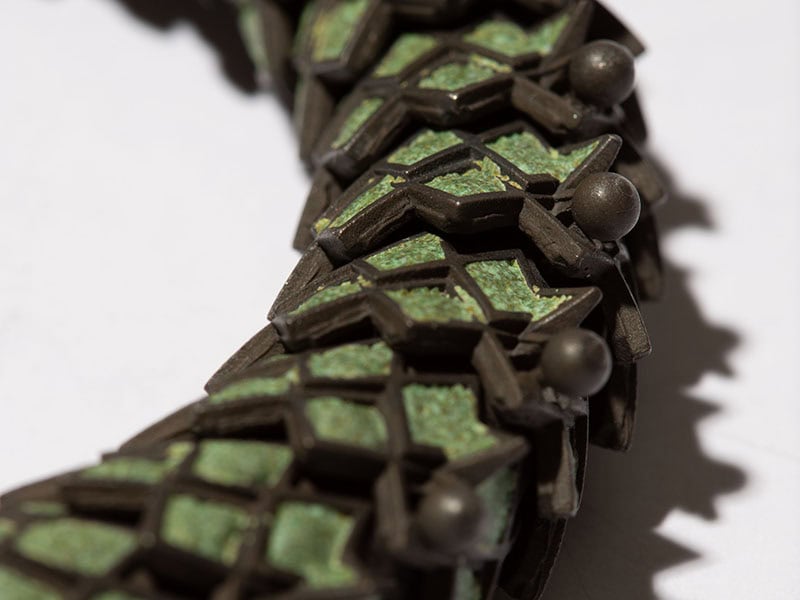
If you could write a master plan for your practice, where would you like to be five years from now?
Aaron Decker: In my studio, having lunch with my kids, spending time with friends, and enjoying the challenge and toil of making new work. I’d still be fighting my inner demons through that work, and enjoying the cycle of frustration that making art brings.
Congratulations again! Thank you for taking the time to tell us about you and your practice.
We welcome your comments on our publishing, and will publish letters that engage with our articles in a thoughtful and polite manner. Please submit letters to the editor electronically; do so here.
© 2024 Art Jewelry Forum. All rights reserved. Content may not be reproduced in whole or in part without permission. For reprint permission, contact info (at) artjewelryforum (dot) org

